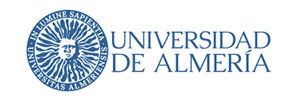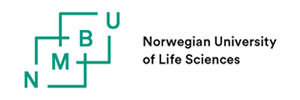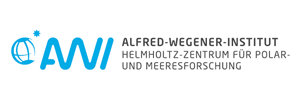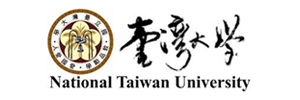Description of the Entity
The University of Almeria (UAL) is a public research organism located in the region of Almería, Spain. UAL is renowned worldwide in the field of microalgae biotechnology for their achievements in photobioreactor design and control and microalgae-based applications. They have participated in numerous EU projects including ALGINET, EPALMAR, AQUAFUELS, ENERBIOALGAE, CO2ALGAEFIX, and MANAGER, and several Spanish national projects including ELICARBON, PUFASC13, CENITCO2, MACROBIO, and CENITVID. They have also collaborated with a large number of research centers, universities, and private companies in Europe and worldwide. UAL’s expanded experience includes laboratory research and large-scale implementation of industrial demonstration plants for the production of microalgae and derived compounds such as aquafeed, biofertilizants and biofuels. UAL has also developed patents for the design and operation of photobioreactors to produce microalgae, including an integrated process for the overall processing of the biomass to obtain commodities of industrial use. UAL also coordinates the H2020 SABANA project (Budget 10 M€), which is focused on the production of biofertilizers and Aquafeed from microalgae produced in wastewater.
Role in the Prodigio Project
UAL’s role in the project is related to algae biotechnology and bioprocess engineering aimed at the improvement of microalgae biomass production systems through innovative reactor designs. Their strong background and expertise in microalgae cultivation, from bench-scale photobioreactors reactors to hectare-scale algal ponds, ensures the success of the lab-scale perturbations experiments carried out to simulate the failure of the algae biomass production process.
The Team
Gabriel Acién is a researcher and professor at the Department of Chemical Engineering of the UAL since 2012. He received a degree in Chemical (specialist Industry) at the University of Granada in Spain in 1992 and a Ph.D. in Chemical at UAL in Spain in 1996. He participates in research and teaching of Chemical Engineering and Biotechnology of Microalgae. He has extensive experience organizing national and international meetings. Expertise in data analysis and modeling, simulation, development, and control of processes. He has expertise in scale-up and optimization of large-scale processes, including the development of adequate control systems. His research areas include:
- (i) biomass production in photobioreactors, process engineering, scale-up, and product recovery,
- (ii) production of long-chain polyunsaturated fatty acids from microalgae, with special emphasis on eicosapentaenoic acid (EPA), arachidonic acid (AA), and docosahexaenoic acid (DHA),
- (iii) production of carotenoids (astaxanthin, lutein) and phycobiliproteins,
- (iv) CO2 capture from flue gases using biological systems,
- (v) microalgae biofuels.
He has participated in 20 European projects as well as 40 national projects and contracts with companies. He has published more than 120 papers in international journals and 12 book chapters, including 8 patents extended at the international level. He is a member of the International Society of Applied Phycology since 1998, he was a member of the EC International Society of Applied Phycology from 2006 to 2010, and an editor of Algal Research and RELABIAA journals. He also collaborates with international projects such as DeserBioenergy in Chile (Budget 8 M€) and CONACYT in Mexico (Budget 3 M€). He currently coordinates the H2020 SABANA project, which focuses on the production of biostimulants and biopesticides from wastewater using microalgae.
Emilio Molina Grima is a researcher and professor at UAL since 1978. He received his degree in Chemical (specialist Industry) at the University of Granada (Spain) in 1973 and his Ph.D. in Chemical at the University of Granada in Spain in 1977. He heads the “Biotechnology of marine microalgae” group since 1994 and teaches Chemical Engineering and Biotechnology of Microalgae. He has extensive experience in organizing national and international meetings. He is a member of the Institution of Chemistry (Spain) from 1974, the American Oil Chemical Society (AOCS) from 1998, the Spanish Chemical Industry Federation from 1998, and UAL representative in the Andalusian Inter-University Institute of Biotechnology. In addition, he is a member of the Executive Committee of the International Society for Applied Phycology and the Editorial Board of the European Journal of Phycology. His research topics include bioprocess engineering in microalgae, chemical and biochemical reactors design, modeling and operation, and gas absorption with simultaneous chemical reactions. In the last years, his research includes bioprocess at different development steps:
- (i) industrial exploitation of algal biotechnology for fine chemicals production,
- (ii) Integrated system for biological abatement of flue gases from power plants by using microalgae,
- (iii) physico-chemical and enzymatic methods for algal oil recovery and processing,
- (iv) photobioreactor engineering and scale-up,
- (v) biorefinery based production strategy (using every component of the biomass feedstock to produce usable products),
- (vi) Microalgal biofuels.
He has published more than 150 papers in international journals, 10 patents, and 12 books related to these topics.
Jose M. Fernàndez Sevilla is a Researcher and professor at UAL since 1993. He received his degree in Chemical (specialist Industry) from the University of Granada, Spain in 1990 and a Ph.D. in Chemical at UAL in Spain in 1994. He was an assistant professor at UAL’s Department of Chemical Engineering until 2011. He is also a professor in Master’s studies at the Universities of Malaga and at the International University of Andalucía. His research includes the treatment of waste biomass and the biotechnology of microalgae. He has participated in 10 European projects and 30 National projects and contracts with companies. He has published more than 90 papers in international journals and 12 book chapters. Additionally, he has 8 patents extended at the international level. He is a member of the International Society for Applied Phycology and a regular reviewer of international journals. He has collaborated with international projects such as DeserBioenergy in Chile (Budget 8 M€) and a few European demonstration projects such as ALL-GAS with Aqualia or ALGAEFIX with AlgaEnergy, which aimed to develop processes for the production of biofuels from microalgae in specific locations.









